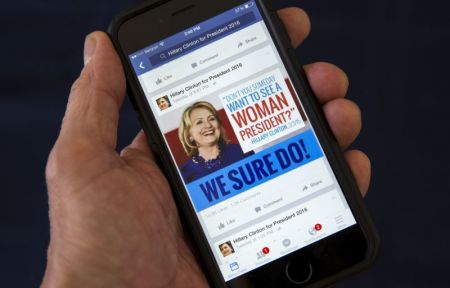Democrats Twice as Likely to 'Unfriend' People on Facebook After Election: Survey

Democrats were twice as likely to "unfriend" or block somebody on social media sites because of their political postings following the 2016 election and are five times more likely to avoid certain family members this Christmas because of conflicting political views, a new poll has found.
As the United States is coming off an intense and hostile election, the poll released on Monday morning by the Washington-based Public Religion Research Institute finds that 13 percent of Americans say that they either "unfriended," "blocked" or stopped following people on social media websites like Twitter and Facebook because of the political posts those people published following the Nov. 8 outcome.
As the election was won by Republican nominee Donald Trump, the survey finds that about one-quarter of Democrats (24 percent) say that they have "unfriended," "blocked" or stopped following people on social media sites after the election because of their political posts.
The survey, which features the responses of 1,004 adults nationwide and has an error margin of plus or minus 3.6 percentage points, finds that less than one out of 10 Republicans (9 percent) say that they have "unfriended," "blocked" or stopped following people on social media after the election because of their political posts.
Within the Democratic Party, female Democrats (30 percent) were twice as likely to unfriend or block somebody on social media because of their political posts following the election than male Democrats (14 percent).
Additionally, only 9 percent of Independents reported unfriending or blocking someone on social media following the election because of political posts.
When broken down by liberals and conservatives, political liberals were much more likely than conservatives to block or unfollow someone on social media after the election because of the political messaging they post online.
Twenty-eight percent of political liberals say that they have removed someone from their social media feeds following the election, while only 8 percent of conservatives said the same. Just 11 percent of political moderates said they either blocked, unfriended or unfollowed somebody because of their posts on politics following the election.
"The survey also found evidence of significant fallout from the election among personal relationships," PRRI CEO Robert P. Jones said in a statement. "Beleaguered Democrats were significantly more likely than Republicans to report that they unfriended someone on social media or planned to avoid certain relatives during the holidays because of politics."
In total, only 5 percent of respondents said they are planning to spend less time with certain family members this Christmas because of conflicting political views. Meanwhile, 94 percent of respondents said they are not planning to spend less time with certain family members because of political views.
Despite the small percentage in the total population, Democrats (10 percent) are five times more likely than Republicans (2 percent) to report that they are avoiding spending time with other family members because of their political views.
Considering that many Americans had an opportunity to talk with their family members about the election over the Thanksgiving holiday, PRRI found that 16 percent of respondents said they argued with family members about politics during the Thanksgiving holiday. Meanwhile, 84 percent said they did not argue with family members about politics over Thanksgiving.
The same percentage of Democrats and Independents (18 percent) say they had family disagreements about politics over the Thanksgiving holiday, while only 12 percent of Republicans said the same.





















